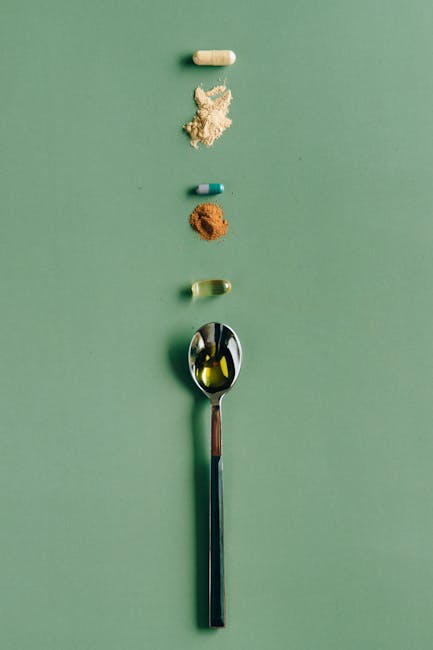7 Ways to IMPROVE Kidney Function | dr.Emasuperr

7 Ways to IMPROVE Kidney Function | dr.Emasuperr
The kidneys, those unsung heroes tucked away in your lower back, are the ultimate filtration system. They tirelessly work to keep your blood clean, balance electrolytes, regulate blood pressure, and even help produce red blood cells. Neglect them, and you're looking at a whole host of health problems. Thankfully, maintaining and even improving kidney function isn't as daunting as scaling Mount Everest. Let's dive into 7 practical and, dare I say, enjoyable ways to give your kidneys the love they deserve, inspired by the wisdom of dr.Emasuperr and a healthy dose of modern understanding.
1. Hydration is King (and Queen)

Okay, okay, you've heard it a million times: drink more water. But honestly, it's the foundation of kidney health. Imagine your kidneys as a finely tuned espresso machine; they need a steady stream of water to brew (or rather, filter) effectively. Dehydration forces them to work harder, potentially leading to damage over time. And let's face it, who wants a burnt-out espresso machine?
How much is enough? A good rule of thumb is to aim for at least eight 8-ounce glasses of water a day. However, factors like activity level, climate, and existing health conditions can influence your needs. Think of your urine as a barometer: a light straw color indicates good hydration, while dark yellow suggests you need to reach for that water bottle.
But hydration isn't just about water! Herbal teas (unsweetened, of course!), infused water with fruits and vegetables (cucumber, lemon, berries – get creative!), and even water-rich foods like watermelon and celery can contribute to your daily fluid intake. Think of it as a delicious and varied hydration strategy. Innovation meets hydration!
2. Mind Your Minerals: Sodium, Potassium, and Phosphorus

Minerals are essential for countless bodily functions, but when it comes to kidney health, balance is key. Too much or too little of certain minerals can put a strain on your kidneys.
- Sodium: We live in a world of salty snacks and processed foods. High sodium intake can raise blood pressure, which in turn damages the kidneys. Read food labels carefully and aim to reduce your sodium intake. Cooking at home allows you to control the amount of salt you add.
- Potassium: Potassium helps regulate blood pressure and nerve function. However, people with kidney disease may need to limit potassium intake, as the kidneys may not be able to effectively remove excess potassium from the blood. Consult with your doctor or a registered dietitian to determine your individual potassium needs.
- Phosphorus: Similar to potassium, individuals with kidney disease often need to monitor their phosphorus intake. High phosphorus levels can contribute to bone problems and other complications. Processed foods and dairy products are often high in phosphorus.
The take-home message? Work with a healthcare professional to understand your specific mineral needs and make informed dietary choices. Don't blindly restrict or overconsume any mineral without guidance.
3. Embrace a Kidney-Friendly Diet

What does a kidney-friendly diet look like? It's all about choosing foods that are gentle on your kidneys and support their function. Think fresh, whole foods, lean proteins, and plenty of fruits and vegetables (with mindful mineral content, as discussed above!).
Here are some examples:
- Lean Protein: Chicken, fish, tofu, and legumes are excellent sources of protein. Avoid overconsumption of red meat, which can be hard on the kidneys.
- Fruits and Vegetables: Berries, apples, cauliflower, cabbage, and bell peppers are good choices. Work with your healthcare provider to ensure you're balancing your potassium and phosphorus levels effectively.
- Whole Grains: Opt for whole grains like brown rice, quinoa, and whole-wheat bread instead of refined grains.
- Healthy Fats: Avocado, olive oil, and nuts (in moderation, considering potassium and phosphorus) are great sources of healthy fats.
Beyond specific foods, consider how you prepare them. Steaming, baking, or grilling are healthier options than frying. Also, be mindful of portion sizes. Even healthy foods can put a strain on your kidneys if consumed in excess.
4. Control Blood Sugar and Blood Pressure

Diabetes and high blood pressure are two of the leading causes of kidney disease. Managing these conditions effectively is crucial for protecting your kidneys.
- Blood Sugar: If you have diabetes, work closely with your doctor to keep your blood sugar levels within the target range. This may involve medication, diet changes, and regular exercise. Monitoring your blood sugar regularly is essential.
- Blood Pressure: High blood pressure damages the blood vessels in the kidneys, impairing their ability to function properly. Lifestyle changes like reducing sodium intake, exercising regularly, and managing stress can help lower blood pressure. Medication may also be necessary.
Regular checkups with your doctor are vital for monitoring your blood sugar and blood pressure and making any necessary adjustments to your treatment plan. Remember, proactive management is key to preventing kidney damage.
5. Exercise Regularly (But Don't Overdo It)

Regular physical activity offers a plethora of health benefits, including improved kidney function. Exercise helps control blood pressure, blood sugar, and weight, all of which are important for kidney health.
What kind of exercise is best? A combination of aerobic exercise (like walking, running, or swimming) and strength training is ideal. Aim for at least 30 minutes of moderate-intensity exercise most days of the week.
However, it's important to listen to your body and avoid overexertion. Pushing yourself too hard can actually harm your kidneys, especially if you have pre-existing kidney problems. Consult with your doctor before starting a new exercise program, especially if you have any underlying health conditions.
6. Be Cautious with Medications and Supplements

Many medications and supplements can potentially harm the kidneys, especially when taken in high doses or for prolonged periods. Nonsteroidal anti-inflammatory drugs (NSAIDs) like ibuprofen and naproxen are particularly known for their potential to damage the kidneys.
Here are some tips for protecting your kidneys when taking medications and supplements:
- Always consult with your doctor or pharmacist before taking any new medication or supplement.
- Follow the recommended dosage instructions carefully.
- Avoid taking NSAIDs regularly or in high doses.
- Be aware of potential drug interactions.
- Inform your doctor about all medications and supplements you are taking.
Don't be afraid to ask questions! Understanding the potential risks and benefits of medications and supplements is crucial for making informed decisions about your health.
7. Get Enough Sleep and Manage Stress

Stress and lack of sleep can wreak havoc on your body, including your kidneys. Chronic stress can raise blood pressure and inflammation, both of which can damage the kidneys. Similarly, insufficient sleep can disrupt hormone balance and impair kidney function.
Here are some tips for managing stress and improving sleep:
- Practice relaxation techniques like meditation, yoga, or deep breathing.
- Engage in activities you enjoy, such as spending time in nature, listening to music, or pursuing hobbies.
- Establish a regular sleep schedule.
- Create a relaxing bedtime routine.
- Limit caffeine and alcohol intake before bed.
Prioritizing sleep and stress management is an investment in your overall health, including the health of your kidneys. Think of it as preventative maintenance for your internal filtration system.
Disclaimer: The information provided in this article is intended for general knowledge and informational purposes only, and does not constitute medical advice. It is essential to consult with a qualified healthcare professional for any health concerns or before making any decisions related to your health or treatment. Dr.Emasuperr's insights, while valuable, should always be interpreted within the context of personalized medical consultation. Self-treating can be dangerous, and it is crucial to seek professional medical guidance for any health issues. This article is not a substitute for professional medical advice, diagnosis, or treatment.